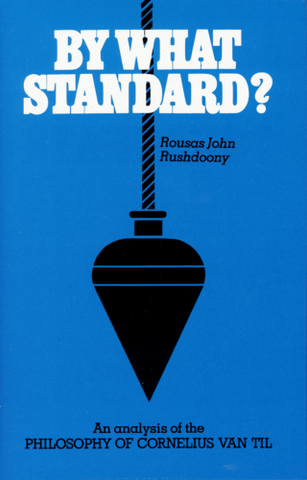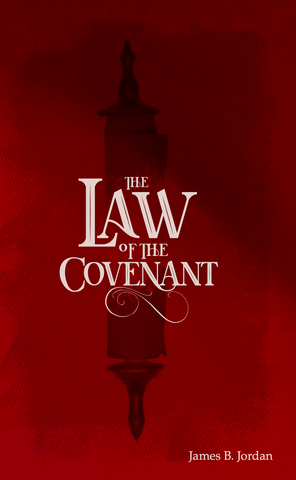One of the biggest issues in our day is the often-repeated refrain in the Christian world “By What Standard?” Next to eschatology, how should we live and by what standard we should live come up all the time. It’s become a big debate among preterists who have adopted something of a dispensational view of biblical ethics. Like dispensationalists, moral precepts found in the Old Testament, especially the law given directly to Israel, no longer apply in the New Covenant. It’s even been a point of contention among non-dispensationalists among Reformed theologians who subscribe to the Westminster Confession and its catechisms. The Larger Catechism has an extended section on the Ten Commandments and their application. There are also commentaries on the Ten Commandments, for example Thomas Watson (1620-1686), The Westminster Larger Catechism: A Commentary by Johannes Vos, and A Body of Divinity: Being the Substance of Several Lectures on the Assembly’s Larger Catechism by Thomas Ridgley (1814), An Exposition of the Moral Law by Jacob Watson.
Dr. Greg Bahnsen was confronted by the faculty at Reformed Theological Seminary (Jackson, MS) over the topic of God’s law when he was a professor and I was a student in the 1970s. You can read about it here: “WHAT REALLY HAPPENED AT REFORMED THEOLOGICAL SEMINARY (RTS).”
Dr. Gary North edited two books (Westminster’s Confession and Theonomy: An Informed Response) in Theonomy: A Reformed Critique with contributions by professors from Westminster Theological Seminary where Dr. Bahnsen received two degrees, Master of Divinity and a Master of Theology, as well as the William Benton Greene Prize in apologetics and a Richard Weaver Fellowship from the Intercollegiate Studies Institute. His book Theonomy in Christian Ethics was based on his master’s thesis at WTS, “The Theonomic Responsibility of the Civil Magistrate.” Greg contributed to the volume The Law, the Gospel, and the Modern Christian: Five Views (1993). He also wrote No Other Standard: Theonomy and Its Critics (1991) and By This Standard originally published in 1985. Let’s not forget R.J. Rushdoony’s By What Standard? (1958) and The Institutes of Biblical Law (1973).

By What Standard?
The sovereignty of the self-contained God is the key to every field, in that only the God of Scripture makes all things possible and explicable and is thus the basic premise not only of theology, but of philosophy, science and indeed all knowledge. In that God is the Creator of all things. He is their only valid principle of interpretation, in that they derive both their existence and meaning from His creative act. This belief is herein set forth in terms of various aspects of human thought.
Buy NowThe debate of the continuing validity of God’s law, including laws that formed the Old Covenant that were to be a guide to the nations, were designed for our benefit and the benefit of the nations. Consider the following:
“See, I have taught you statutes and judgments just as the LORD my God commanded me, that you should do thus in the land where you are entering to possess it. So keep and do them, for that is your wisdom and your understanding in the sight of the peoples who will hear all these statutes and say, ‘Surely this great nation is a wise and understanding people.’ For what great nation is there that has a god so near to it as is the LORD our God whenever we call on Him? Or what great nation is there that has statutes and judgments as righteous as this whole law which I am setting before you today?” (Deut. 4:5-8).
We hear the refrain, “We’re under grace and not law.” In terms of justification, no one has ever been under law. Being under grace does not exempt a person from keeping God’s moral commands. Jesus said, “If you love Me, you will keep my commandments” (John 14:15). Jesus’ commandments are God’s commandments. The world is in a moral crisis. But how do we know this? Because there are numerous fixed moral laws. If God’s law is no longer applicable today, then by what standard do Christians have to deal with the moral morass? Maybe it’s because this world and our time in it are of no consequence for Christians. “We’re pilgrims just passing through,” or, “earth’s not our home,” or “Jesus is all I need.”
While some Christians (and the list seems to grow) dismiss God’s law as the moral standard for today, the theological Left is embracing it. The sexual sin of homosexuality and the gender-fluid movement of sexual identity is taking the nation by storm in the form of Diversity, Equity, and Inclusion (DEI). It’s everywhere. Here’s the latest:
The Biden administration is proposing yet another rule that directly targets the Christian faith. The rule, the euphemistically-named “Safe and Appropriate Foster Care Placement Requirements,” will require foster parents to “utilize the child’s identified pronouns, chosen name, and allow the child to dress in an age-appropriate manner that the child believes reflects their self-identified gender identity and expression.”
Those who do not “affirm” the LGBTQ rules because of their Christian faith will be deemed “unsafe” by the Biden administration and ultimately rejected as foster parent candidates.
What’s the argument against such a law? Too many Christians gave up on using God’s law as a standard. “Free from the law, O happy condition!” Really? What laws are we free from? Certainly not the moral law. This so-called “freedom” is becoming a law of oppression. There’s no neutrality. Yes, appeals can be made to the NT, but the NT makes its case based on OT legislation. Paul certainly was not appealing to Natural Law. The OT was “God breathed … for correction, for training in righteousness” (2 Tim. 3:16-17), “is living and active and sharper than any two-edged sword and piercing as far as the division of soul and spirit, of both joints and marrow, and able to judge the thoughts and intentions of the heart” (Heb. 4:12), and because of “practice” in using God’s word we have our “senses trained to distinguish between good and evil” (5:12-14). By what standard are these accomplished? The NT tells us. We see it in Romans 1:18-27, 1 Corinthians 6:9-11, and 1 Timothy 1:8-11 on the topic of homosexuality and its immoral consequences weaving their way through the nation.
I saw this posted on Facebook:
“To imagine that ‘living biblically’ means trying to keep as many ancient rules as possible just because they are in the Bible misses the point of the law in the first place.” — Christopher J. H. Wright.
As a standalone statement, such a statement can be misunderstood since it’s a quotation from Wright’s article “Learning to Love Leviticus.” Here’s the next sentence: “Old Testament law was not just about rules but also about relationship with God, founded on God’s grace and redemption, and motivated by the mission of living as the people of God in the world, so that the world should come to know the living God.” Amen. Wright then goes on to say:
[B]iblical law can function sharply as a paradigm or model for our personal and social ethics in all kinds of areas: economic, familial, political, judicial, sexual, and so on. We are not “keeping it” in a literalist way like a list of rules. But more important, we are not ignoring it in defiance of what Paul says in 2 Timothy 3:16-17. We are studying and using it as guidance, light for the path, in the joyful way of Psalms 1, 19, and 119.
One of those “ancient rules” is “loving your neighbor as yourself” (Lev. 19:18) that Jesus references as the second greatest commandment:
And thou shalt love the Lord thy God with all thy heart, and with all thy soul, and with all thy mind, and with all thy strength: this is the first commandment. The second is this: “you shall love your neighbor as yourself” There is no other commandment greater than these (Mark 12:30-31).
Are we to suppose that not keeping God’s commandments is displaying love for God and our neighbor? Of course not. Wright makes this point in the following way:
We can find principles even in Israel’s civil laws to apply today. The urban Christians in Corinth did not see oxen grinding corn in their city houses. But when Paul wrote to the Corinthian church, he took an Old Testament law about allowing working oxen to be fed from the product of their labors (Deut. 25:4) and applied it to Christian workers in Corinth. He sees a principle in the case law—originally meant for the benefit of animals—and applies it to working humans. The principle: Work deserves reward. Later he applies another commandment about how manna was to be collected (totally irrelevant to Corinth, you might think), and applies it to the principle of equality between Christians (1 Cor. 9:8-10; 2 Cor. 8:13-15). These are biblical examples of creative application of biblical laws in nonliteral, but very appropriate, ways.
Loving our neighbors is rooted in doing right by them in moral terms. God’s people have lost some of the high ground by pitting gospel over against law. We know sin by the law. When we are redeemed from sin (evaluated in terms of the moral law), we are not then free to sin. In fact, sin is still defined in terms of God’s moral standard that we call law, commandments, or as Wright defines it, “guidance.” But that guidance is not voluntary.

The Law of the Covenant
If we take a man-centered approach to these laws, we might say that the purpose of this legislation is only to ensure human prosperity. Such an approach to the law of God misses the most basic point. These laws show us God's own genuine personal care for His world, and as such these laws cannot be altered by human whim. To be sure, the Bible is man-oriented, and thus obedience to these laws will improve human life; but the laws are God's, and cannot be changed by man. Thus, as we examine the laws in Exodus 21-23, our first concern must be the glory of God, not whether these laws seem right to us sinful men. If we start with God, we will soon see how these laws also improve human life.
Buy Now
